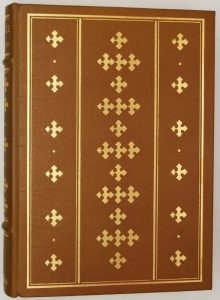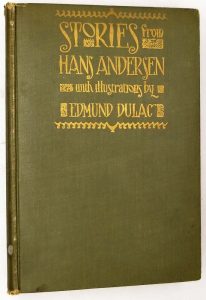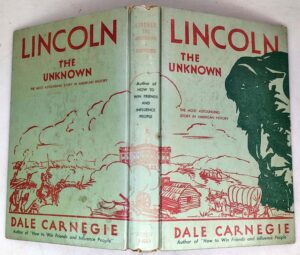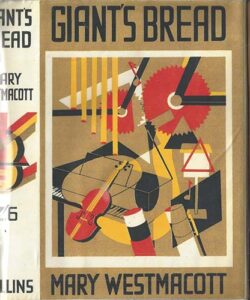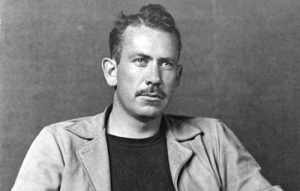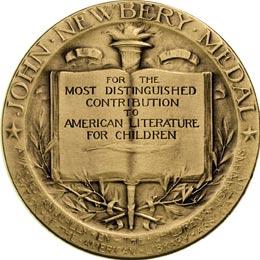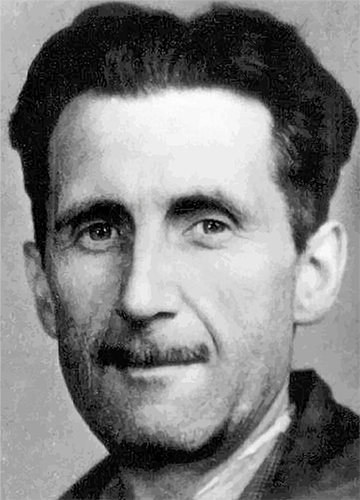
Born Eric Arthur Blair on June 25, 1903, in British India, George Orwell became one of the most influential writers of the 20th century. His experiences with imperialism, poverty, and political betrayal shaped his unflinching critiques of authoritarianism in Animal Farm (1945) and Nineteen Eighty-Four (1949). Orwell’s work transcended literature, embedding terms like “Big Brother” and “Orwellian” into political discourse worldwide.
Early Influences and Formative Years
Orwell’s childhood in England was marked by financial struggle and alienation—themes that later permeated his writing. At Eton College, he absorbed the works of Jack London, Jonathan Swift, and H.G. Wells, whose socialist ideals and satirical edge influenced his style. His time in the Indian Imperial Police (1922–1927) exposed him to colonial oppression, radicalizing him against institutional power.
Political Awakening and Literary Voice
The 1930s solidified Orwell’s socialist convictions. Living among the poor in Paris and London (Down and Out in Paris and London, 1933) and documenting working-class misery (The Road to Wigan Pier, 1937) deepened his empathy for the oppressed. His participation in the Spanish Civil War (1936–1937) was pivotal: fighting fascists only to be hunted by Stalinists revealed the hypocrisy of totalitarian ideologies. Homage to Catalonia (1938), his memoir of the war, showcased his commitment to truth over partisan loyalty.
Influences on Orwell’s Thought
Orwell drew from diverse thinkers. From Charles Dickens, he inherited a focus on social injustice; from Jonathan Swift, biting satire. His skepticism of Stalinism was shaped by anarchists like Emma Goldman and disillusioned ex-communists like Arthur Koestler. The rise of fascism and Soviet purges in the 1930s cemented his belief that power, unchecked, corrupts absolutely.
Orwell’s Enduring Influence
Orwell’s legacy is vast. Animal Farm became a Cold War allegory, while Nineteen Eighty-Four defined dystopian fiction and warned of surveillance states. His essays on language (“Politics and the English Language”) and propaganda remain essential to media studies. Figures like Noam Chomsky, Margaret Atwood, and Christopher Hitchens cite him as a moral compass. Modern movements against censorship and disinformation invoke his name, proving his relevance in the digital age.
Orwell’s work remains influential in popular culture and in political culture, and the adjective “Orwellian”—describing totalitarian and authoritarian social practices—is part of the English language, like many of his neologisms, such as “Big Brother”, “Thought Police”, “Two Minutes Hate”, “Room 101”, “memory hole”, “Newspeak”, “doublethink”, “unperson”, and “thoughtcrime”, as well as providing direct inspiration for the neologism “groupthink”.
Final Years and Death
Plagued by tuberculosis, Orwell wrote Nineteen Eighty-Four in isolation on the Scottish island of Jura. He married Sonia Brownell in 1949 but died months later, on January 21, 1950, at 46. His epitaph—”Here lies Eric Arthur Blair, 1903–1950″—omitted his pen name, a final rejection of the fame he distrusted.
Orwell’s genius lay in his ability to distill complex political truths into gripping narratives. His works endure not just as literature but as warnings—reminders that freedom requires eternal vigilance. As he wrote in Nineteen Eighty-Four: “If liberty means anything at all, it means the right to tell people what they do not want to hear.”
George Orwell – First Editions Identification Guide
| Year | Title | Publisher | First edition/Printing Identification Points |
|---|---|---|---|
| 1933 | Down and Out in Paris and London | London: Victor Gollancz Ltd., 1933 | Black calico-textured cloth on boards. Yellow Dust jacket (8s/6d). Published 9 January 1933. 1500 copies printed. ALSO: 1933. Second (500 copies) & Third impression (1000 copies) were issued later January 1933. "First published January 1933 | Second impression January 1933 | Third impression January 1933." stated on © page. ALSO: Harper & Brothers Publishers, NY, 1933. First American edition. Pale purple calico-textured cloth on boards. Pale green Dust jacket ($2.50). "No. 2414" at foot of front flap and "No. 2413." at foot of rear flap. Published 30 June 1933. 1750 copies printed. |
| 1934 | Burmese Days | Harper & Brothers Publishers, NY, 1934 | Orange calico grain cloth on boards. Dull yellow and off white floral swirl endpapers.Yellow Dust jacket ($2.50). First American edition, precedded the UK edition a year. "FIRST EDITION | I-I" stated on © page. Published 25 October 1934. 2000 copies printed. ALSO: Second US impression, 1934. "SECOND EDITION | K-I" stated on © page. ALSO: London: Victor Gollancz Ltd., 1935. First English edition. Black calico textured cloth on boards. Yellow Dust jacket, with Clergyman's Daughter reviews on front/back flap (7s/6d). Published 24 June 1935. 1500 copies printed. Note: There was a second printing of 500 copies. |
| 1935 | A Clergyman's Daughter | London: Victor Gollancz Ltd., 1935 | Black calico-textured cloth on boards. Front and back cover plain. Yellow Dust jacket with excerpt reviews for Down and out in Paris and London (7s/6d). Misprint on p. 188: "Blask Mask" for "Black Mask"". Published 11 March 1935. 2000 copies printed. ALSO: Harper & Brothers Publishers, NY, 1936. First American edition. Blue calico textured cloth on boards.. Cream Dust jacket, printed in pink & black on front cover ($2.50). Error on the spine being stamped "The Clergyman’s Daughter". Published 17 August 1936. 1000 copies printed. |
| 1936 | Keep the Aspidistra Flying | London: Victor Gollancz Ltd., 1936 | Blue calico textured cloth on boards. Yellow Dust jacket(7s/6d). Published 20 April 1936. 3000 copies printed. ALSO: Harcourt, Brace and Company, [1956]. First American edition. Green calico textured cloth on boards. Cream Dust jacket ($3.75). "FIRST AMERICAN EDITION, 1956" stated on © page. Published January 1956. |
| 1937 | The Road to Wigan Pier | London: Victor Gollancz Ltd., 1937 | Limp orange cloth. Left Book Club Edition (Not for Sale to the Public). Two variants:, priory as listed: (A) 200 copies were bound without the foreword. (B) Bound with foreword. Note: In some copies the illustrations are placed in the wrong order, 1—16 following 17—32. priority undetermined. 44,150 copies printed. Yellow Dust jacket (2s/6d). ALSO: London: Victor Gollancz Ltd., 1937. First English trade edition. Blue calico textured cloth on boards. Yellow Dust jacket (10s/6d). Published 8 March 1937. 2150 copies printed. Notes: This is really only a reissue of the first edition, without the foreword, with a new title page, and in a variant binding.ALSO: London: Victor Gollancz Ltd., 1937. Limp orange cloth. Reissue of Part 1 of the Left Book Club Edition. "PART ONE ONLY" stated on the front cover. (1s). 890 copies printed. ALSO: Harcourt, Brace and Company, [1958]. First American edition. Blue calico-textured cloth on boards. Off white Dust jacket. |
| 1938 | Homage to Catalonia | London: Secker and Warburg, 1938 | Green calico textured cloth on boards. Cream Dust jacket (10s/6d). "First Published April 1938" stated on © page. Published 25 April 1938. 1500 copies printed. Misprint on p. 236, line 3 "where a comma is omitted after "In fact". ALSO: Harcourt, Brace and Company, [1952. First American edition. Yellow calico textured cloth on boards.. Cream Dust jacket, front and spine speckled green ($3.50). "first American edition" stated on © page. Published May 1952. 4000 copies printed. |
| 1939 | Coming Up for Air | London: Victor Gollancz Ltd., 1939 | Blue calico textured cloth on boards. Yellow Dust jacket(7s/6d). Published 12 June 1939. 2000 copies printed. ALSO: Harcourt, Brace and Company, [1950]. First American edition. Grey calico textured cloth on boards. Cream Dust jacket, printed in green and blue ($3.95). "COPYRIGHT, 1950, BY | HARCOURT, BRACE AND COMPANY, INC" stated on © page. Published 19 January 1950. 8000 copies printed. |
| 1941 | The Lion and the Unicorn | London: Secker and Warburg, 1941 | Mottled grey linen grain cloth on boards. Cream and blue Dust jacket (2s). "First published 1941" stated on © page. Published 19 February 1941. 5000 copies printed. |
| 1945 | Animal Farm | London: Secker and Warburg, 1945 | Green calico textured cloth on boards. Dust jacket printed in grey & green (6s). "First Published May 1945" stated on © page. Published 17 August 1945. 4500 copies printed. Note: There were two reprints in August, 1945 (10000 copies) & October 1946 (6000 copes) with "Reprinted [DATE]" stated on © page. ALSO: Harcourt, Brace and Company, [1946]. Black calico textured cloth on boards. Black Dust jacket ($1.75). First American edition. "first American edition" stated on © page. Published 26 August 1946. 50,000 copies printed. ALSO: Reginald Saunders, Toronto, [1946]. Fist Canadian edition. Red calico textured cloth on boards. Black Dust jacket ($2.00). "first Canadian edition" stated on © page. Published November 1946. 2000 copies printed. |
| 1949 | Nineteen Eighty-Four | London: Secker and Warburg, 1949 | Green calico-textured cloth on boards. Two variants Dust jacket: red and green(10s). "First published 1949" stated on © page. Published 8 June 1949. 25,575 copies printed. ALSO: Harcourt, Brace and Company, [1949]. First American edition. Grey calico grain cloth on boards. Two variants Dust jacket, blue & red ($3.00). "first American edition" stated on © page. Published 13 June 1949. 20,000 copies printed. ALSO: Book of the Month Club reissue. Same binding as First American edition. No mention of "first American edition" on © page. Dust jacket has "Book of the Month Club" at foot of the front flap. Over 190,000pp. ALSO: S.J. Reginald Saunders Ltd., Toronto, [1949]. First Canadian edition. Same binding as First American edition. "first Canadian edition" stated on © page. 15,000 copies printed. |
George Orwell – First Printing Dust Jackets Identification Guide
Gallery of First edition Dust Jackets of Orwell’s works. Including First UK and US edition Dust Jackets.
Reference:
- Wikipedia
- Gillian Fenwick: George Orwell, A Bibliography
